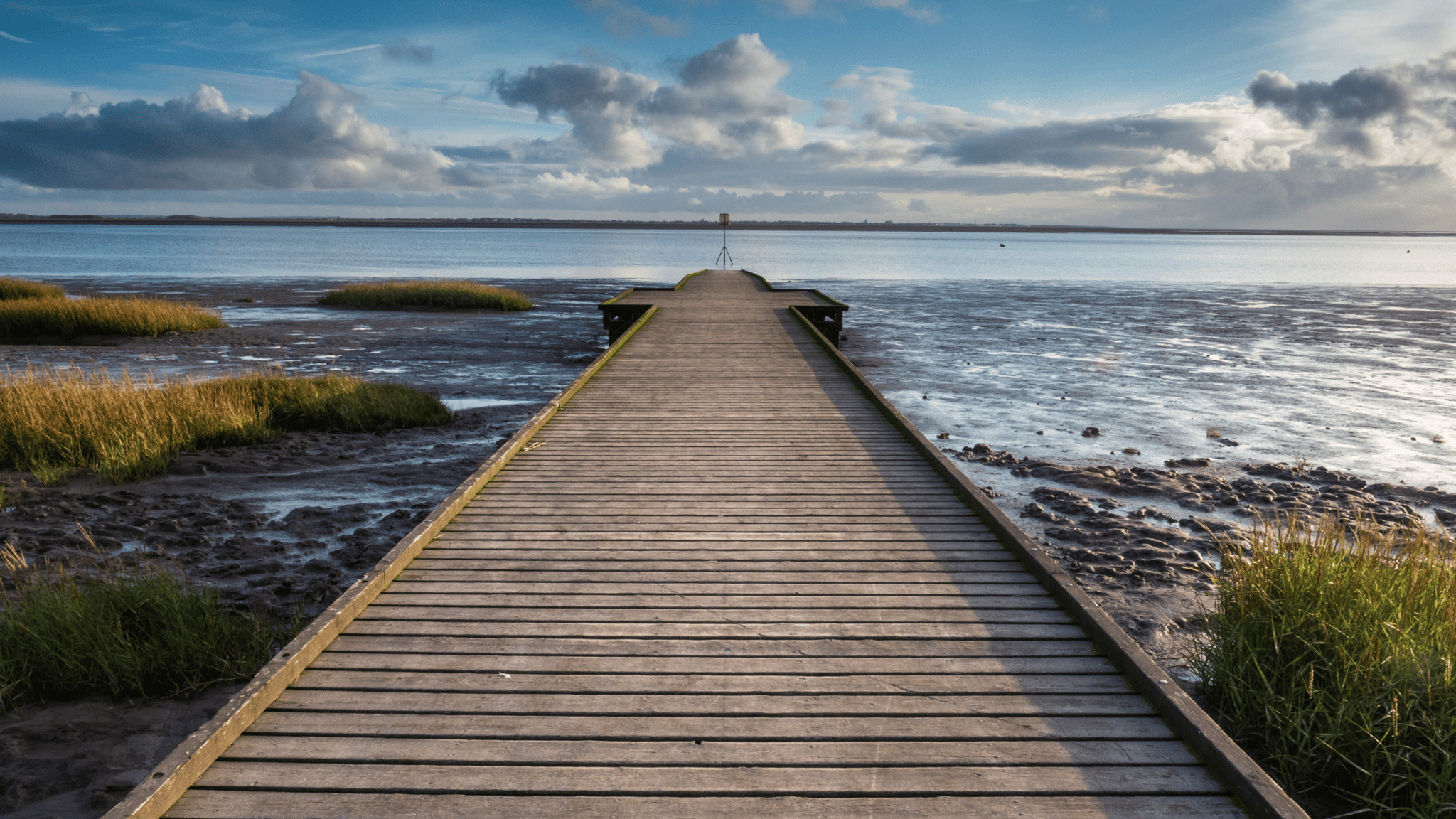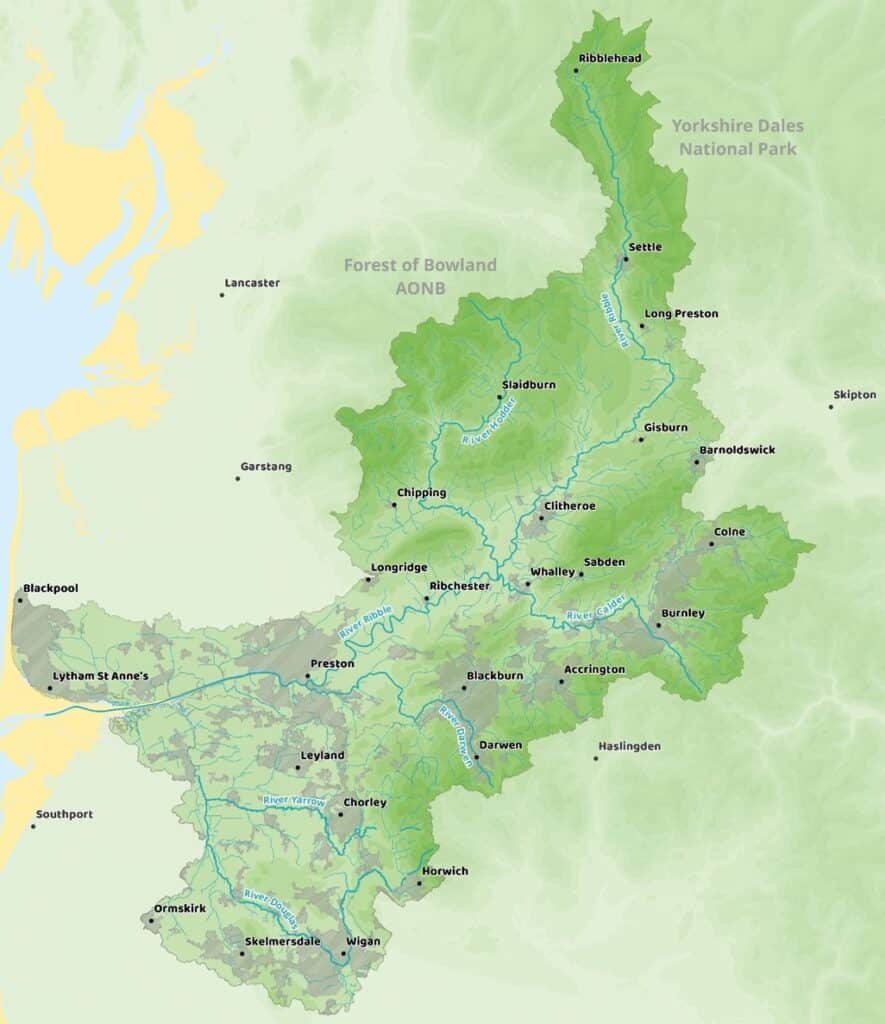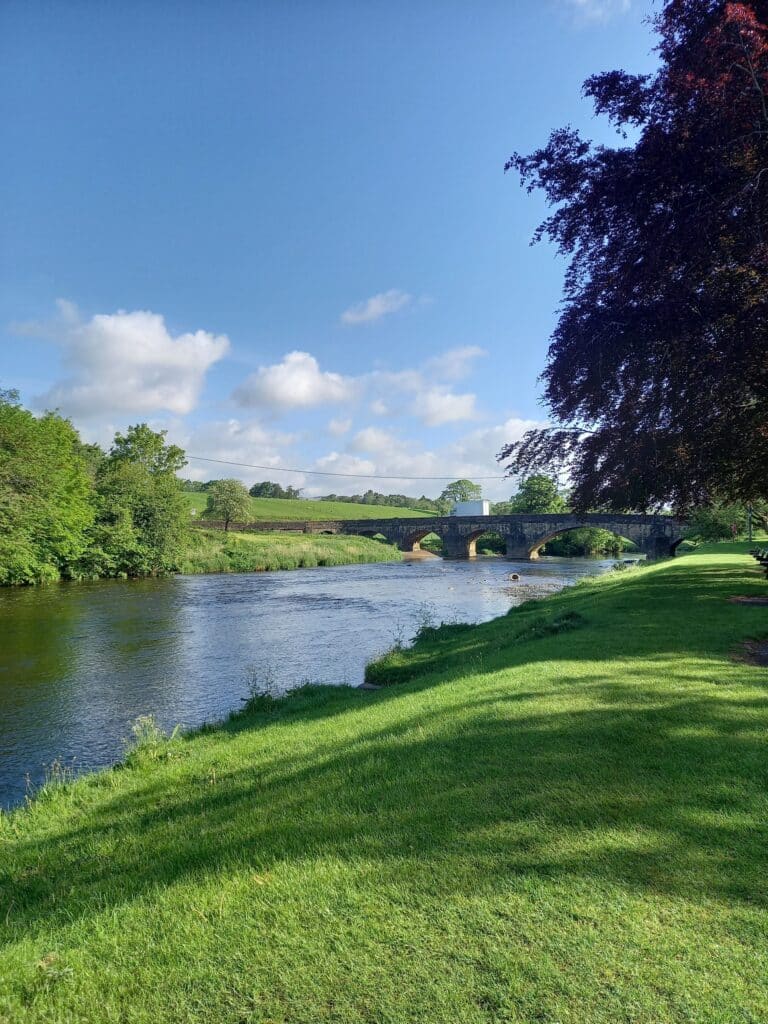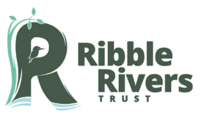From the deepest depths of the ocean to tiny tinkling brooks, all of our streams, rivers, and seas are connected.

But did you know this goes even further? How often do you think about the gleaming blue waters of our coastline whilst you watch rain run down a roadside into a road drain? Or think about the journey our wastewater goes on when you wash your pots and pans after a Sunday roast?
This World Oceans Day we want to remind you that all the planets’ waters are interconnected. World Oceans Day aims to create healthy oceans brimming with wildlife. One of the ways they want to achieve this is by guaranteeing protection for 30% of our planet’s waters.
Most of us live miles from the coast, but we can still make a huge difference by protecting our rivers instead.

By being conscious of the fact that the water we use in our homes and gardens eventually ends up in rivers we can help improve water quality both on the coast and locally too.
Some changes you can make at home include; looking for misconnected appliances, only flushing the 3Ps, saving water wherever possible, avoiding garden pesticides and fertilisers, and being mindful of what we put down our indoor and outdoor drains. Check out our Water Friendly Homes guide for more tips and information.
Here at Ribble Rivers Trust, we’re focusing our efforts on other ways of improving water quality. From helping farmers access grants to improve land management and business practices to planning clean ups in litter hotspots, our team are working hard to protect your rivers and seas.
Better water quality locally means that rivers can support a greater variety and abundance of wildlife. The cleaner the water, the more river invertebrates (or insects/ bugs/ critters) survive. More invertebrates provide more food for fish and birds, who will then provide food for larger birds and mammals.
Like all ecosystem’s rivers exist in a careful balance, the cleaner and more natural they are the better the balance. Cleaner rivers are also much more attractive. If you are lucky enough to live near a brook, stream, or river, then you know that the cleaner the water is, the nicer it is to live near.
Another exciting development is the new Safe to Splash campaign.

This is a bid to gain Bathing Water Status for the River Ribble at Edisford. Like 86% of England’s rivers, the Ribble sadly fails to meet the criteria needed for ‘good’ ecological status or chemical status. In an area like the Ribble Valley there are multiple contributing factors affecting water quality. These include agricultural pollution, sewage pollution, and pollution from homes including septic tanks and misconnected drains and appliances.
If successful this stretch of the Ribble would join one of a handful of inland rivers under monitoring. This includes the Wharfe which is benefitting from the hugely successful Ilkley Clean River Campaign. All areas with Bathing Water Status receive regular monitoring during the bathing season (15 May to 30 September) for bacteria detrimental to human health. Each site is then given a designation of either excellent, good, satisfactory or poor.
As well as helping people to make informed decisions about water quality before they take a dip, this status will encourage water industries and environmental bodies to take measures to lower pollution levels and deal with the problems facing our rivers head on.
Find out more here and take our survey here.
rivers and seas

